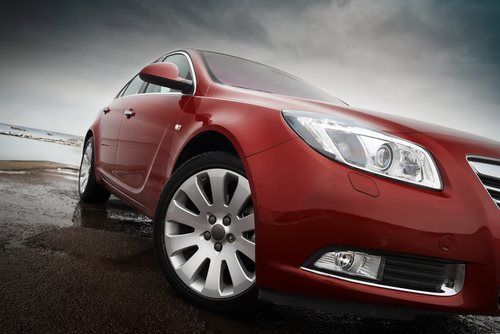
You need to be truly ready to buy a car before signing a contract or other binding document that obligates you to pay for the car. Once you commit to buying a car, you will be financially responsible and in most circumstances, you cannot take it back. Therefore, when buying a car, being through, reading every word or every agreement you sign and getting all promises on paper will help you make an informed decision that leaves you with an appropriate means of recourse if the car is a lemon or is flawed in any other way.
Magnuson-Moss Warranty Act and buying a car
This act guarantees all written warranties issued by the manufacturer or other agent. This is to avoid litigation over the promises made by the manufacturer to the buyer. As such, many warranties will allow for alternative dispute resolution and other measures to ensure customer satisfaction. Although you will have this protection when buying a new car, buying used car will be a grey area, especially as some cars may be sold without a warranty or “as is,’’ with no guarantee that the car will function as it should.
Uniform Commercial Code and implied warranties
Uniform Commercial Code of 1952 defines implied warranties, which shall include the product’s:
• Fitness for a particular purpose – the product must perform for the function as advertised.
• Merchantability – the product must have all defects noted by the merchant at the time of sale and will fulfill the purpose for which it was sold.
• Workmanlike quality- any item made or constructed for the consumer must be made to acceptable standards.
• Warranty of title – the seller has not stolen the goods and has a legal right to sell to the consumer.
The dealer must abide by the UCC and sell you the product in good faith, believing that it will function as it should and that any written guarantees made (pursuant to the Magnuson-Moss Act) will be honored. Acting in bad faith or selling a defective product will open venues of enforcement, such as state lemon laws and even possible fraud is bad faith attempts have been made to deceive the consumer. Subsequent legislation has outlaws such practices as tampering with odometers to lower mileage.
Terms you will hear when buying a car
Mileage – the amount of miles a used car has driven. This is a good but not perfect indicator of the life of the car, more so than the years it was active or the purpose for which it was used.
Buyer’s remorse – the feeling some get after making a large purchase. Sadly, if you have buyer’s remorse, there is very little you can do, unless you are within a very narrow time frame that state law allows you to work with the dealer to return the car. Dealers that offer return clauses will only do so because it benefits them. You will often need to pay to return the car.
As is – this term means that you are buying the car without a warranty an all defects and problems with the car are disclosed to you. The dealer or seller is not obligated to cover the cost of repairs or liable for problems with the car. It is important to analyze agreements between you and the dealer to check if this clause is included in the agreement. In spite of this tag, the seller is required to disclose any information about defects and issues related to the car and failure to do this will be a violation of state lemon laws.
Inspection – you are entitled to have a mechanic independent of the dealer to check the car for faults, defects and potential problems before buying it. You will need to request that the dealer allow you to inspect the vehicle at the dealership or at the mechanic’s. Feel free to walk away from the deal if the dealer refuses inspection.
Warranty – this is a written guarantee from either the manufacturer or deal of the used car to cover some or all of the defects and part failures during the specified term of the warranty. The warranty must be specific on the obligations of the manufacturer or dealer and specify the percentage of the costs of parts and labor will be covered under the warranty.
Service contract – this is similar to a warranty as it provides some benefits and defines the relationship between the buyer and dealer. For service contracts, the buyer typically purchases this from the dealer and the contract will define coverage, deductibles, prices and exclusions. Carefully analyze the terms of a service contract before agreeing to purchase one from a dealer.
Test drive – if you have the opportunity to test-drive a vehicle, do so. Not only will this confirm your desire to buy the used car, you will be able to identify glaring issues with the car that will affect your buying decision.
Financial implications of buying a car
You must be prepared for the financial obligations of buying a car. This includes ensuring you will be able to make timely payments if you choose to finance. Ensure you check the numbers on the financing agreement and that you are aware how interest will affect the principal you will owe to the dealer or salesperson. Remember that the absence of a down payment does not necessarily work out in your favor as this is a greater principal that you will be paying interest on.
Fees involved in buying a car
Destination charge – cost to deliver the car from the factory to the dealership, is set by the manufacturer and the buyer will end up paying it. Any other destination or delivery fee is unnecessary. This destination charge is a mandatory fee that cannot be avoided.
Title and
registration fees – if you require a new license plate for the vehicle, the dealer will charge you this fee, set by the state, to acquire it for you. The fee is lower if you already have plates and want to transfer them to the new vehicle. You must register the vehicle.
Documentation fee – this fee is charged for processing the paperwork related to acquiring and buying the car. Many states cap this fee but other states where there are no limitations will have the he run into the hundreds of dollars. Consider this when buying a car in another state.
Sales tax – even cars are subject to sales tax. Buying the car in another state will subject you to your state’s sale tax once you register it in your state. The dealer may help facilitate registering the vehicle in your state.
Advertising fees – this fee can be challenged if it is not immediately disclosed to you. This is the char that manufactures charge dealers for advertisement and some dealerships will try to pass it one to the consumer.
Guaranteed Auto Protection Insurance – if you are leasing, this fee covers the difference between your payments and the life of the lease if the car does not survive until the end of the lease.
Extended warranty/service contract – at your discretion, you may purchase additional protection for your vehicle. Do so only if you determine this is to your advantage and that the conditions are fair to you. Many drivers will never need their warranty but others have saved substantially because of it.
Just about any other fee that can be added to a vehicle can be disputed, challenged, or avoided. Other fees and coverage can be had cheaper elsewhere. All of these fees are the reason why it is important to read all of the terms related to buying or financing a car.
What is a buyer’s guide?
Federal law requires dealers that sell over six cars a year to provide a buyer’s guide to whomever buys a car. This will contain important information about the car and serves as a large disclaimer about what the buyer may encounter through buying and using this car. The buyer’s guide must list the conditions of sale (as-is vs. warranty) as this is necessary to determine liability for faults, defects and repairs the car will need. If there is a warranty, the guide will note repair costs paid by the dealer. The buyer’s guide also includes disclaimers, such as there is no guarantee of enforcement on spoken promises and that promises made in writing should be kept safe. In terms of technical specifications, the buyer’s guide will list all mechanical systems on the car and possible faults and your right to have the car inspected by an independent mechanic. The right to test drive the car may also be included.
Can I return a used car?
The seller has no legal obligation to allow you to return the car once you have driven it off the lot. There will be limited exceptions in California and Ontario. Even then, in the case of California, you must pay to exercise the return option. Returns can only be achieved if a return clause is added to the contact between you and the seller. Otherwise, the car is your responsibility. The federal government has no say in this matter.
Critical car systems that should be inspected before buying a used car
– Brake system
– Cooling system
– Differential
– Electrical system
– Engine
– Exhaust system
– Frame & Body
– Fuel system
– Inoperable accessories (AC, Heater, gauges)
– Steering system
– Suspension system
– Tires
– Transmission
– Wheels
Although all of these systems will have unique problems, common problems affecting most systems in used cars are fluid leakage, cracks/visible damage, poor alignment and worn parts. A pre-purchase inspection from an independent mechanic can spot these potential issues and advise you on your buying decision. Some or all damage to these systems will be covered by an implied warranty if the system is critical to the car’s safe operation.
Recourse against dealers
The Federal Trade Commission, as well as standard practice recommends speaking with the dealer and entering an alternative dispute resolution, if necessary. Some warranties may require ADR before seeking legal action. Through ADR, you may reach a resolution that will have the dealer cover the cost of repairs. Check your service contract and any warranties that came with the car in the event of a problem.
Filing a complaint with the local Better Business Bureau will help alert other potential buyers about fraudulent or unscrupulous dealers. Persistent complaints will almost certainly lead to increased scrutiny into the practices of that use car dealer. Class action against the dealership by several injured parties may be possible as a result of this investigation. Filing a complaint with the Federal Trade Commission is also a possibility for larger dealers.
Small claims court is the ultimate destination for litigation related to buying a used car. You may have to consider an attorney when going to small claims court, especially if the other party intends to have legal representation. Here is where it is critical to have all promises in writing. The clerk of the small claims court will advise you on the strength and possible limitations on your claim against the seller.
Private Sellers
Private sellers are not bound by the same rules as dealers. For one, they do not have to abide by regulations, such a providing a buyer’s guide and all sales are considered “as is” unless otherwise noted by the seller. You need to be aware of limitations on the car’s warranty, such as if the warranty or service contract is non-transferable. This may put you on the hook for repairs if the car is indeed going to be non-functional or require maintenance at some point. Most states do no set a minimum requirement for the car to function or for inspection before the car is sold. Failure to meet federal or state requirements for emissions may prevent the registration and legal operation of the car. The seller has no obligation to have the car meet inspection standards before selling it.
Buy a car / buying a car/car buying/buying a car out of state










